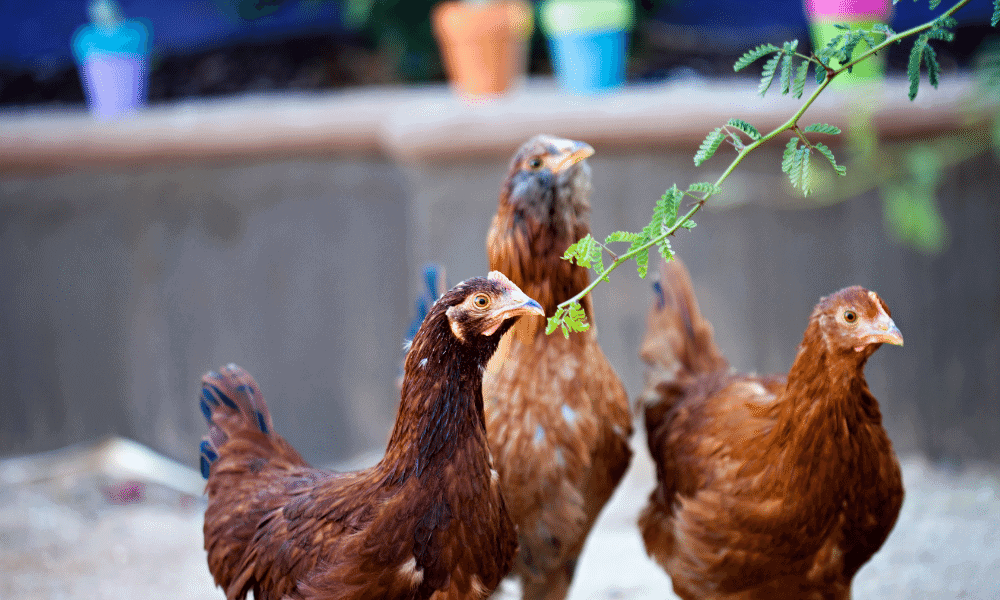When you raise chickens of your own you realize just how different their eggs can be from commercial counterparts!
There are a lot more mistakes made, and what we like to call “practice eggs”.
Most of the time finding a slightly deformed egg is no reason to worry about your chicken’s health. But, if it happens frequently it can be a sign of a nutrient or vitamin deficiency, or in rare cases sickness.
So, if you’ve found your chickens laying soft-shell eggs then it’s natural to be a little confused. But is it really cause for concern?
Here’s what a soft-shell egg means in your chickens, the reasons why they could be laying soft-shell eggs, and what you can do to help!
Chickens Laying Soft-Shell Eggs?
A soft-shell egg, sometimes referred to as a rubber egg, is where a chicken will successfully lay an egg without the outer, hardened layer of the eggshell.
The result? You’re left with a soft shell, which is really just a rubbery, tough membrane (which is usually on the inside of the eggshell).
It’s not as uncommon as you would think, as backyard chickens, particularly young hens will often have a few strange-looking eggs. From speckled eggs to laying smaller eggs, to laying a liquid egg.
Although a soft-shell egg isn’t normally any cause for concern, if you find more than one in a short space of time it can be a sign of a nutritional deficiency or a stressful environment.
Reasons Why Your Chicken Is Laying Soft-Shell Eggs
Sometimes it’s hard to know exactly why your chicken is laying soft-shell-eggs, it normally comes down to a few culprits.
Here are eight common reasons your chicken has laid a soft shell egg and what it can mean.
Young Hen

As pullets grow into young hens and their reproductive system matures they are bound to have odd or inconsistent eggs come up. This period of a young hen’s life, is often why people sometimes call the first handful of eggs “practice eggs”. It’s also common for newly laying hens to lay one egg and then stop for a while before their next lay!
It’s often during this time of a chicken’s life that they will produce odd eggs like soft-shell eggs, or eggs with other deformities.
Although it’s completely safe to eat your chicken’s first egg, it’s for this reason many chicken owners often honor their first egg in other ways.
Old Hen
Similarly, If your chicken is too old, don’t expect her to lay perfect eggs as well. Her reproductive system is tired and normally won’t produce eggs of the same quality as a younger hen.
It’s similar to menopause and fertility in women. At some point, a chicken will stop making eggs entirely as it goes through Henopause.
During a hen’s older ages, it’s also more common to see misshapen eggs, like flat-sized eggs or elongated eggs.
Lack Of Nutrients (Especially Calcium)
In the backyard chicken community, you constantly hear how important calcium is in a chicken diet. This is why owners feed their chicken’s scrambled eggs with their egg-shells, grit, oyster shells, or shrimp shells for added calcium.
Because an eggshell is almost entirely made from calcium, and most hens will be able to lay one egg a day, they need a high calcium intake to keep this up!
So, it’s common that a lack of calcium in your hen’s diet will more likely lead to soft eggs or other egg production issues.
Aside from calcium, however, chickens need a balanced diet containing all their macro and micronutrients needs, and general malnutrition will inevitably cause issues in your chicken’s egg production.
Environmental Stress
Stress comes in many forms. When we speak of environmental stress in chickens, it’s referring to the general deterioration of a chicken’s wellbeing, health, and egg production due to external factors in the environment.
One of the most common causes of environmental stress comes from transporting chickens. Just like us humans, chickens take time to adjust to their new environment, and will naturally shift their priorities from laying eggs, to staying safe.
Another common cause of environmental stress comes from predator encounters and an overall feeling of safety. After all, this is why chickens are so afraid in the first place.
Any of these reasons or other causes of environmental stress can have real effects on your chicken’s egg production and can lead to them laying soft eggs.
Heat Stress
Heat stress is a specific stressor coming from a chicken’s inability to regulate its temperatures back to a normal state.
Most people think this only happens in extreme weather. Although it is more likely to occur at very hot temperatures above 100°F, it can happen even at lower temperatures where a chicken isn’t able to get out of the sun, rehydrate, or reduce its body temperature.
So, if you notice your chickens are too hot, take the necessary steps to ensure they can regulate their temperature as best as possible, otherwise, you may be left with fewer eggs, soft eggs, or other strange-looking eggs!
Rooster Stress
Rooster stress is more common than you’d think and most commonly happens to a rooster’s “favorite” hen.
Rooster stress is the experience a hen has when they are chosen and forced to mate too frequently.
This type of stress is known to cause a wide range of side effects to your hens, from egg production issues to weight loss in chickens, to general health impacts.
It Just Happens
One of the simplest truths there is to chickens laying seemingly peculiar and strange eggs is that it simply just happens. It’s natural.
Although there often is an underlying issue, some of them are so minor or insignificant that it fixes itself on the very next egg cycle, and may never be seen again.
It Could Be A Sign Of Sickness
Finding one soft egg is normally absolutely OK, and it’s very unlikely you’ll find another from the same hen for a while unless they are suffering from clear stress of malnutrition.
But, if you consistently are finding misshapen or soft eggs missing their tough exterior shells then it may be a sign of illness or a reproductive issue in your hen.
If you suspect something is not right, it’s always best to consult a veterinarian for advice!
Chicken Laying Soft Eggs At Night?

If you’ve noticed your chickens are only laying soft eggs at night, then you can start to narrow down the possible causes.
Start by closely observing what happens at night, if there are any major environmental stressors, from potential predators to bright lights, to loud noise. Get curious.
Ensure your chickens are also eating well, and enough calcium throughout the entire day.
Also, think to yourself whether it’s possible that it’s only a coincidence that they are laying them overnight, and if you are finding soft eggs regularly it could be time to consult a vet in case of illness.
How Can You Help?
The first thing you need to know is that a soft egg, every now and then, is nothing to be worried about.
The best way to help with any egg production issues is to focus on the key elements of a chicken’s health. Diet. Exercise. Safety. And companionship, after all, chickens do have friends in the flock.
One thing I always do is crush up or powder my old leftover eggshells. Since they are almost entirely made of calcium they make a great health supplement for any laying hens!
Check on your chickens regularly, look out for any other signs of environmental, heat, or rooster stress, and make an intervention where possible.
Can You Eat A Soft Egg?
Although technically the soft exterior membrane of the soft-shell egg is fully sealed, the egg is missing a very important barrier that prevents bacteria, or other nasty things from getting into the egg itself.
It’s, for this reason, it’s never recommended to eat any kind of disfigured egg, from a softshell egg to a broken or cracked egg.
Conclusion
The shell is vital to an egg’s integrity because it shields the white and yolk from all potential pathogens.
However, when it comes to your chicken’s health, you shouldn’t be too concerned if you find a soft-shelled egg every once and a while.
But, if you start seeing more than one, then do your investigations and see if you can fix it yourself. If it continues don’t hesitate to speak to a vet, particularly if you’ve narrowed down the exact hen who keeps laying them!
